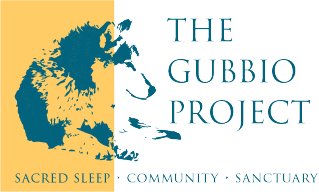by Laura Slattery, Executive Director, May 2016
The Gubbio Project had the opportunity to reflect on the Scriptures at St. Boniface one Sunday in March. Two of the readings for the day dealt with seeing. In the first, the prophet Samuel explains that “God sees not as people see,” looking not at the exterior of a person, but at their heart. In the gospel story, Jesus heals a blind man.
As part of my reflection I shared that I often feel ‘blind’ when I see only the exterior of people and judge them to be ‘homeless’ or ‘addicts’ immediately. I lament when it is my second or third thought, and not my first, that the person I am seeing on the street is my brother or my sister and wonder how long it will take me to be the kind of person that I seek to be - one that sees or notices first the heart, or the suffering, or the beauty, of a person, and not their material, living, or mental health condition.
In researching for the reflection, I came across a fascinating description of what it is actually like for people who were born blind to have an operation and be able to see. According to one surgeon learning to see for the first time is a surprisingly painful process that can take years. From Emilie Griffin’s book, Souls in Full Flight:
The patient on opening his [sic] eyes gets little or no enjoyment; indeed, he finds the experience painful. He reports only a spinning mass of light and colors. He proves to be quite unable to pick up objects by sight, to recognize what they are, or to name them. He has no conception of space with objects in it, although he knows all about objects and their names by touch.... His brain has not been trained in the rules of seeing. We are not conscious that there are any such rules; we think we see, as we say naturally. But we have in fact learned a whole set of rules during childhood. (p. 143-144)
More research for the reflection revealed a series of studies done by social neuroscientists Lasana Harris and Susan Fiske in 2006 and 2007. They first studied what happened in the brain when people viewed photos of those they considered outcasts (i.e. lowest on a scale in their minds in terms of warmth and competence, those to whom they could not relate). The part of the brain that recognizes someone as a fellow human being did not light up; their brain registered them the same way it would if they were looking at an object! In equally important follow-up studies they discovered that when people thought about preferences, wants, or idiosyncrasies that the people in the photographs whom they considered outcasts might have, the area of the brain being studied did in fact light up.
The take away from this research is that it seems that science is giving me, and us, a way to understand what the Scriptures instruct. It is possible, and necessary - albeit a long process - to train our brains to see anew and heal ourselves from our blindness. When it comes to those to whom we consider outcast - whoever they may be - when we think about their needs or preferences, we literally humanize them in our brains. And this is good news for those of us interested in “seeing as God sees.”
